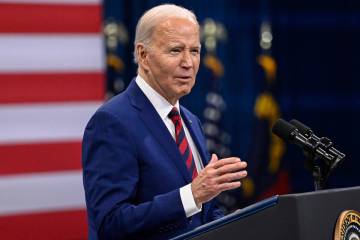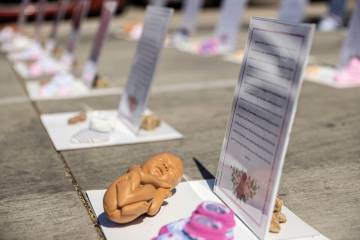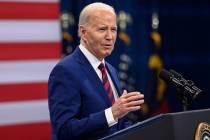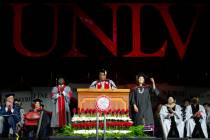VICTOR JOECKS: A lesson from 9/11: The enemy gets a vote
In September 2001, I was a freshman at Hillsdale College in Michigan.
I was at work on the morning of Sept. 11, when a co-worker told me something about a plane crash. We didn’t have access to a TV, so we turned on the radio. This was before ubiquitous smart phones.
The seriousness of what happened didn’t hit me until I got off work and saw the news coverage.
Planes slamming into buildings. The Twin Towers falling. All flights being grounded.
This isn’t supposed to happen here. This is the United States, not a third-world country.
After graduating college and working for a couple of years, I joined the Army National Guard. A big signing bonus helped, but the desire to serve my country was another factor. I was 18 years old when my country was attacked. I stayed safe and comfortable, while hundreds of thousands of others answered the call. Joining the enlisted ranks at 24 was a belated attempt to make that right.
I ended up with the best job in the Army — public affairs. I was able to tell the stories of soldiers. The work they did. The good they accomplished. The sacrifices they made.
One phrase I heard frequently stands out: The enemy gets a vote. Every plan must account for the reality that in war other people want to stop you from accomplishing your mission and preferably kill you and your unit.
That’s a long way of backing into a discussion on foreign policy. Regular readers probably realize that I don’t write about it that often. I don’t find it as interesting, and I’m not as well versed in it as I am domestic issues. (And touché to the subset of my readers who immediately thought, “You’re not well versed in those either.”)
It’s also messy.
Iran wants a nuclear weapon and to be the dominant force in the Middle East. Not ideal when Iranian leaders refer to America as the Great Satan and call for our destruction. Or when Iranian-backed militias target U.S. troops in Iraq.
It’s in America’s interest to check and limit Iran. Note to President Joe Biden: You don’t do that by sending them pallets of cash.
You do that by building alliances with those in the region who are opposed to Iran. Israel, a thriving democracy that respects human rights, is a great ally. After that, it’s more murky. A 2019 investigation by the BBC found domestic workers in Kuwait being sold as de facto slaves on Instagram. Saudi Arabia is notorious for human rights abuses, especially toward women.
Either you allow a country bent on “death to America” to increase its power or you check its influence by working with countries despite their abhorrent internal practices.
Neither option is great, but checking Iran likely leads to fewer American deaths.
It’s understandable that Americans wanted to leave Afghanistan. Not a fun way to spend tens of billions of dollars.
But here’s the problem with Biden’s decision to leave behind a power vacuum the Taliban quickly filled. The last time the Taliban controlled Afghanistan, it gave safe harbor to al-Qaida. That led to the worse terror attack in U.S. history and almost 3,000 dead Americans.
The enemy gets a vote.
Victor Joecks’ column appears in the Opinion section each Sunday, Wednesday and Friday. Contact him at vjoecks@reviewjournal.com or 702-383-4698. Follow @victorjoecks on Twitter.





























